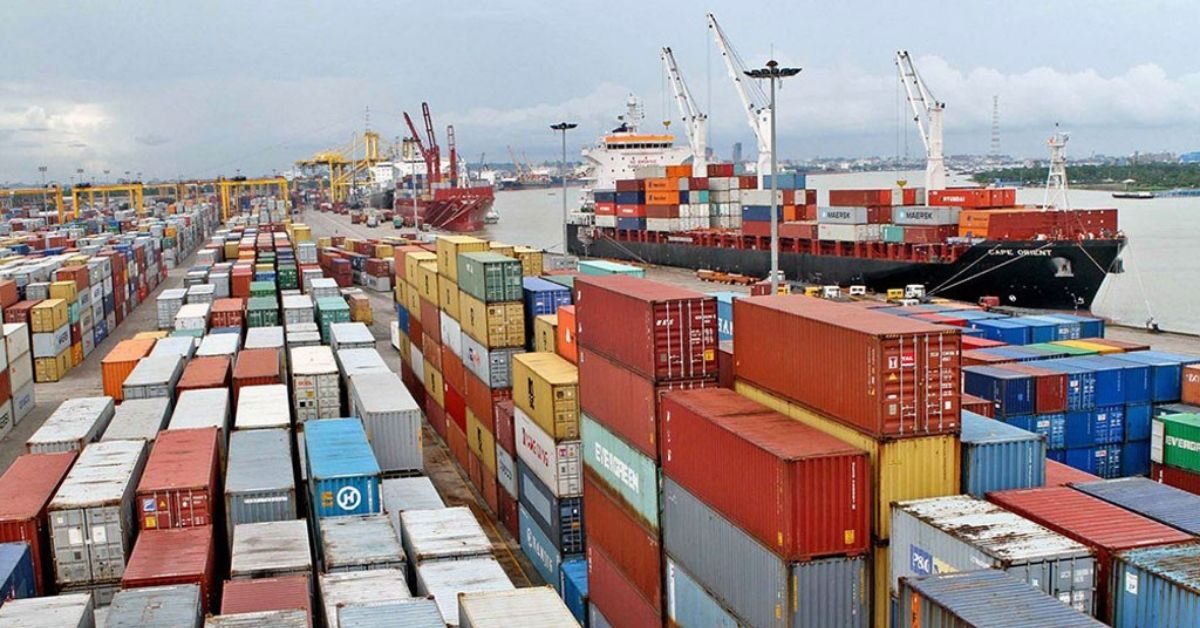Bangladesh is set to make use of the electronic seal and lock mandatory for the transit and transhipment of goods from India in a bid to ensure full-proof security during movement between the countries.
Under the agreement for the use of the Chattogram and Mongla ports (ACMP) signed in 2018, neighbouring India has completed four shipments of transit goods as per the Standard Operating procedure (SOP).
Customs officials said now the National Board of Revenue (NBR) is working on the issuance of a permanent order under which transit goods could be moved from India to Bangladesh under the agreement.
As per “Electronic Seal and Lock Service Rule-2018”, the government can charge fees for transit goods shipment.
A senior NBR official said the rules would be amended, incorporating the provision of e-tracker as per the demand of the businesses.
Currently, the rule is optional for all businesses but it might be made mandatory for transit goods movement, he said.
However, the customs could not implement the rules for four pilot shipments of transit goods as the government could not appoint any electronic lock and seal supplying company as per the NBR statutory regulatory order (SRO) in this regard.
On June 26, the national revenue board framed the rules titled “Electronic Seal and Lock Service Rules 2018” with immediate effect.
Instead of electronic lock and seal, the customs wing had to use manual lock (seal gala) and deploy one or more escort officers to complete the trial run of transit goods.
Customs officials said the use of electronic seals and locks would be able to minimise the risk of transit goods movement.
The international customs trade and agreement wing of NBR recently proposed the high-ups take an immediate move to amend the electronic seal and lock rules and introduce it.
India-Bangladesh Chamber of Commerce and Industry President Matlub Ahmad said the use of electronic seal and lock would be welcomed by everyone if the government could offer a subsidised price for the service.
“Cost of availing electronic lock and seal services is too high in the rule which kept it shelved for years. It should be affordable like [a] normal seal and lock to facilitate businesses,” he said.
It’s a tracker, nothing else, but it’s very useful and should be implemented immediately, he added.
The electronic lock could be used domestically too to check theft in case of apparel goods export process, he added.
The trail runs of transit goods ended on October 2022. Under the agreement, the approved routes are Chattogram-Mongla port to Agartala via Akhaura, Chattogram-Mongla port to Dawki via Tamabil, Chattogram-Mongla port to Sutarkandi via Sheola, Chattogram-Mongla port to Srimantapur via Bibirbazar and vice versa.
An SOP was signed to operationalise the cargo transit in 2019 during a visit of Bangladesh Prime Minister Sheikh Hasina to India. The neighbouring country signed the agreement in a bid to reduce both the cost and time for transportation of goods to the northeastern states of India.
From Bangladesh’s part, the agreement would help logistics, insurance, transport and the financial sector earn revenue. Under the agreement, the traders would have to use only Bangladeshi trucks for the transhipment of goods.
Syed Hasan Tarique, a logistic expert and member of the American Chamber of Commerce and Industry (Amcham), said the electronic seal and lock could be enforced as an optional measure as there is such a tracking option available now.
The NBR made mandatory use of e-tracking technology for the transportation of export-import goods from the port to the private inland container depots (ICDs), also known as off-docks, and vice versa.
Earlier, different trade bodies and major business organisations opposed the measure saying that it would escalate the cost of doing business.
These include the Federation of Bangladesh Chambers of Commerce and Industry (FBCCI), Metropolitan Chamber of Commerce and Industry (MCCI), Chittagong Chamber of Commerce and Industry (CCCI), Bangladesh Garment Manufacturers and Exporters Association (BGMEA), Port Users Forum (PUF), and Chittagong Customs Clearing and Forwarding Agents Association (CCCFAA) etc.
They urged NBR to scrap the rules and not to continue it. Under the rules, the exporters and importers will have to pay Tk 600 for each container or covered van or truck, bound for Chittagong Port from the private ICDs, and to the ICDs from the port, for the first 48 hours.
However, they have to pay Tk 50 for each of the next hours for the service. Businesses found it a costly and time-consuming technology that may cause delays in the shipment of goods and also intensify congestion in the port.
Last year, the stiff opposition from businesses forced the government to cancel at least three inauguration programmes for launching the electronic lock and seal system at Chittagong Port.
The businesses opine that the e-tracking system is not required for the exporters, importers and other stakeholders of the port.








